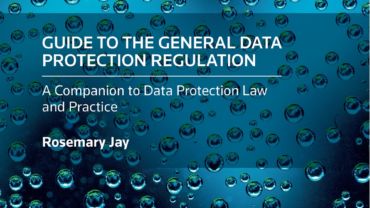Image credit: Reuters/Toby Melville
As the end of 2017 draws near, it’s time to take a look at the key highlights from the past 12 months.
Over the past year, the legal sector has continued to operate in an increasingly challenging environment, where clients are demanding more for less, as well as greater efficiency, and enhanced results.
Amidst the challenges, however, there have been signs of real change and innovation taking place in the legal market. The legal technology ecosystem has started to gain maturity and its widespread adoption across the industry is showing no sign of abating. There has also been some progress when it comes to achieving diversity across the legal industry.
Meanwhile, elsewhere, 2017 was also a year of significant political uncertainty – catalysed back in April when Prime Minister Theresa May shocked the country by calling a snap general election, in a bid to boost the Conservative Party’s parliamentary majority and secure her Brexit mandate.
May, who went on to win June’s election in less than convincing circumstances by forming a minority government with the Democratic Unionist Party, has faced an agonising last six months, wrestling with EU leaders – and at times her own government – during Brexit negotiations.
Such political turbulence, Brexit specifically, has of course led to lots of debate as to whether the inherent uncertainty about the future legal and regulatory landscape might lead to changes in market practice.
Innovation
It has been another big year for legal technology innovation. As the pressure continues to mount on law firms to drive efficiency for their clients, the role of innovative technology is becoming increasingly emboldened – moving from the realm of ‘hype’ into the legal ‘mainstream’.
The growing requirement for the legal industry to embrace innovative technology has also been compounded by the need to secure a competitive edge in the market. A report published earlier in the year, Legal Artificial Intelligence (AI): a beginner’s guide, added that ‘no firm wants to allow a rival to get so far ahead in terms of using new technology that they begin to have too great a competitive advantage.’
A subsequent paper, AI Now: The growing Adoption of Legal AI, reported that an increasing number of lawyers were embracing AI as a fact of life and of practice. At Legal Geek in October − the law-tech startup event hosted in partnership with Thomson Reuters − it was revealed that 30 top law UK law firms are now using or piloting some form of AI, and all 100 of the top firms are using, piloting or considering it. So, there are clear signs that innovative technology, forms of AI in particular, is driving change in the way legal services are delivered. Watch this space in 2018.
New models still emerging
Given the perpetually changing legal environment, questions have been raised in recent years around the future of the traditional law firm partnership model – given the recent influx of new ‘Alternative Legal Service Providers (ALSP).’ A very popular article this year focused on a study on understanding ALSPs; exploring how legal services are being widely delivered via models that depart from the traditional law firm model.
According to the study on ALSPs published earlier in the year by Thomson Reuters, the ALSP market is ‘evolving rapidly’ despite being relatively young. Driven ‘largely by the changing dynamic between law firms and corporations and the desire to lower costs as well as the need for specialised expertise that does not exist in-house,’ the report concluded that ALSPs will continue to be a growing and competitive part of the legal market in the future.
GDPR
This year in-house corporate legal teams have been busy preparing for the General Data Protection Regulation (GDPR), which comes into force on 25 May 2018.
Addressing GDPR at Thomson Reuters’ Data Protection Forum, the event focused on business readiness and key priorities to consider. Meanwhile, perhaps illustrating the significance of GDPR and the challenging months ahead, our article ’GDPR: what you need to know’ was one of the most read in 2017.
Cyber security
Data breaches are becoming a growing concern for law firms. Cybercriminals are aware that firms often store important client identification documents and financial details — but their cybersecurity is not always as secure as it perhaps should be. Law firms are falling victim to data breaches and hacks, which can lead to the worrying question: ‘Are law firms the weakest link in cybersecurity?’
In October this year, a large offshore law firm confirmed that it had been the victim of a ‘data security incident’ in 2016, which eventually resulted in the leak of 13.4 million documents and is the subject of an investigation by 100 media groups.
Ransomware is rapidly becoming a common line of attack for cybercriminals – the process of using malicious software that blocks access to a company’s data and is accompanied by a financial demand, threatening to delete everything unless the organisation pays up. No coincidence then perhaps that it is becoming increasingly common to take out cyber insurance.
Looking forward
As 2017 draws to a close, it is noted that many of the themes mentioned will follow into 2018. From expanding client demands to the looming GDPR to the need to have bulletproof IT systems, and the legal market will continue to change and be somewhat unpredictable. With change comes opportunity to advance and improve, so 2018 is yet another blank slate to dream, innovate and strive for excellence.




